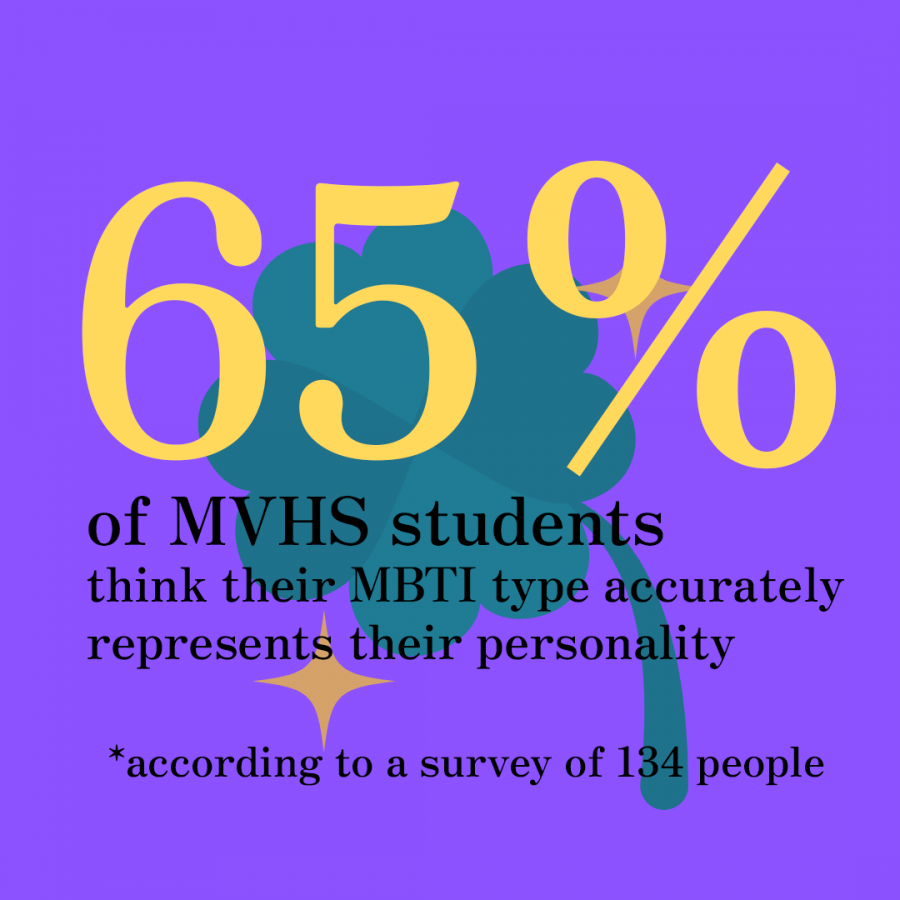My type of person
Looking at how accurately the MBTI types represent individuals
November 12, 2021
When junior Ishaan Datta was in middle school, he took a career aptitude test in one of his classes. [While he was researching] Datta also stumbled upon the Myers-Briggs Type Indicator personality test and got INTP as his type.
With over 2 million test-takers each year, the MBTI test, found on 16personalities.com, has evolved into the most widely used personality assessment, becoming a staple for many schools, universities and companies. Sophomore Madi Polidoro, whose type is INFJ, says the test is intriguing because it reveals information personalized to each test-taker.
“It’s interesting because you want to relate to other people or to something that describes you, and it feels good when you’re [learning about] feelings that you can’t get on paper,” Polidoro said. “[It’s] confirming what [you] already have suspicions about.”
One feature the test offers is a list of career paths geared toward each personality type. Senior Nabeeha Ahsan, whose type is ENFP, says her suggested career fields in arts and design align with her creative personality.
“I want to go into the field of fashion so I can see why the creativity thing would come up,” Ahsan said. “Personality-wise, I have a really hard time focusing on things, so it makes sense that [personality type] would play into that.”

Datta also found that the MBTI test was able to accurately convey his interests in science and research, but doesn’t think these results should carry too much weight in one’s career decisions.
“I haven’t really considered my personality type when deciding what careers I think are interesting,” Datta said. “I just think about what I myself think is interesting, not necessarily what an INTP would think is interesting.”
Despite the test’s popularity and appeal, many test-takers point to its flaws. For instance, Datta argues that the test oversimplifies the extent to which an individual carries certain traits and forces an individual into one of two polarizing traits, when they are somewhere in between.
Additionally, Polidoro believes the test offers specialized results of how one would perform under specific circumstances and environments, but doesn’t provide a holistic representation of personality.
“I think a lot of people go into the test thinking it’s gonna be your entire being summed up into one [result],” Polidoro said. “But the more you look at it, the actual criteria that they have on the test is very geared towards … how [people] interact with people … in a more professional setting.”
Ahsan adds that another shortcoming of the test is that test-takers carry implicit bias when answering the questions. She claims that test takers know what personality type they want to get, leading them to choose the most appealing choices.
“It’s not just reading your brain,” Ahsan said. “It’s you, reading the questions and reading the answers it gives you. And you give what you think you should give instead of what answers you would give at that moment.”
According to Datta, his type wavers between INTP and ISTP. Ahsan recognizes this occurrence and believes that the test results are unreplicable, as she has friends who have “never gotten the same results twice.” Research has found that up to 50% of individuals arrive at different results the second time they take the test.
According to Polidoro, the varying results are due to inaccuracies of the test rather than actual changes in one’s personality. She thinks that although one’s personality could change under extreme circumstances, personality is built upon core traits that are unlikely to undergo drastic changes. However, she reasons that personality can still change slightly, such as if introverted individuals practice communication skills and eventually excel in a job that requires more interaction. Ultimately, she acknowledges reasons for the test’s large popularity.
“It’s definitely a good icebreaker that people can jump on,” Polidoro said. “Like how Harry Potter houses have morphed into that … But it definitely should be taken lightly, and maybe not as a super accurate [measure] of personality.”


















